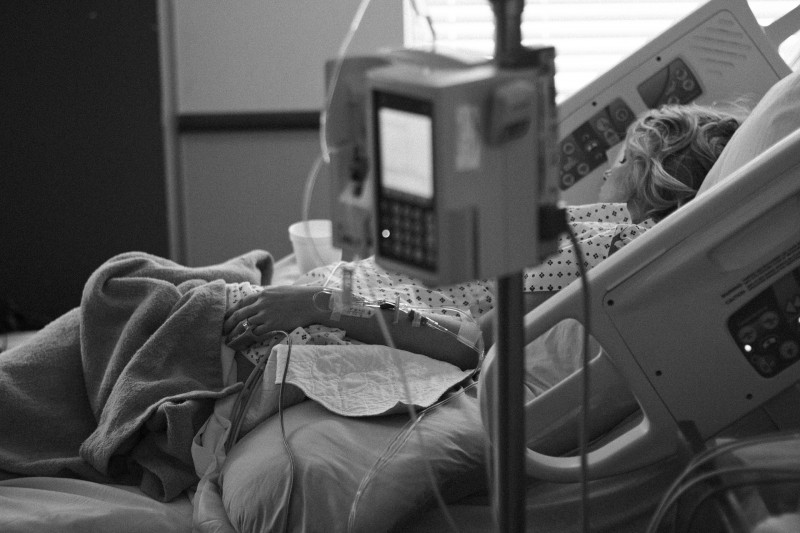
Jul 4, 2017
Despite the fact that obesity increases both the risk for stroke and death, a new study has found that people who are overweight or even mildly obese survive strokes at a higher rate as compared to those with a normal body weight.
The findings, which appear in the Journal of the American Heart Association, adds to the ‘obesity paradox’ seen in previous studies where increased body weight appears to have a protective effect on certain groups of patients.
A stroke occurs when blood flow to an area of the brain is cut off and brain cells are deprived of oxygen and begin to die. Each year about 185,000 people die from a stroke, the fifth leading cause of death in the U.S. and a leading cause of adult disability. (more…)

Jun 29, 2017
While there is solid evidence that adolescent overweight and obesity are associated with coronary heart disease (CHD) and stroke, less is known about the association between body mass index (BMI) and rarer cardiovascular diseases. A new large-scale, 45-year Israeli study published in the Endocrine Society’s Journal of Clinical Endocrinology & Metabolism found that higher BMI as well as BMI in the accepted normal range in late adolescence may be related to a higher risk of death in mid-adulthood from non-coronary non-stroke cardiovascular diseases such as fatal arrhythmia, hypertensive heart disease, cardiomyopathy, arterial disease, heart failure and pulmonary embolism. (more…)

Jun 29, 2017
Higher intelligence (IQ) in childhood is associated with a lower lifetime risk of major causes of death, including heart disease, stroke, smoking related cancers, respiratory disease and dementia, finds a study published by The BMJ.
It is the largest study to date reporting causes of death in men and women across the life course, and the findings suggest that lifestyle, especially tobacco smoking, is an important component in the effect of intelligence on differences in mortality. (more…)

Jun 29, 2017
Stroke is an age-related disease that disproportionately affects women. Although experimental studies have identified several hormonal and genetic factors underlying these differences, little is known about how pregnancy influences risk as this has not been previously studied in the laboratory setting. However, new research published in the Proceedings of the National Academy of Sciences shows that while perimenopausal female mice that gave birth multiple times (multiparous) were at higher risk of stroke, they recovered better than mice that had not ever reproduced. (more…)

Jun 25, 2017
People who suffer a stroke often undergo a brain scan at the hospital, allowing doctors to determine the location and extent of the damage. Researchers who study the effects of strokes would love to be able to analyze these images, but the resolution is often too low for many analyses.
To help scientists take advantage of this untapped wealth of data from hospital scans, a team of MIT researchers, working with doctors at Massachusetts General Hospital and many other institutions, has devised a way to boost the quality of these scans so they can be used for large-scale studies of how strokes affect different people and how they respond to treatment.
“These images are quite unique because they are acquired in routine clinical practice when a patient comes in with a stroke,” says Polina Golland, an MIT professor of electrical engineering and computer science. “You couldn’t stage a study like that.”
Using these scans, researchers could study how genetic factors influence stroke survival or how people respond to different treatments. They could also use this approach to study other disorders such as Alzheimer’s disease.
Golland is the senior author of the paper, which will be presented at the Information Processing in Medical Imaging conference during the week of June 25. The paper’s lead author is Adrian Dalca, a postdoc in MIT’s Computer Science and Artificial Intelligence Laboratory. Other authors are Katie Bouman, an MIT graduate student; William Freeman, the Thomas and Gerd Perkins Professor of Electrical Engineering at MIT; Natalia Rost, director of the acute stroke service at MGH; and Mert Sabuncu, an assistant professor of electrical and computer engineering at Cornell University.
Filling in data
Scanning the brain with magnetic resonance imaging (MRI) produces many 2-D “slices” that can be combined to form a 3-D representation of the brain.
For clinical scans of patients who have had a stroke, images are taken rapidly due to limited scanning time. As a result, the scans are very sparse, meaning that the image slices are taken about 5-7 millimeters apart. (The in-slice resolution is 1 millimeter.)
For scientific studies, researchers usually obtain much higher-resolution images, with slices only 1 millimeter apart, which requires keeping subjects in the scanner for a much longer period of time. Scientists have developed specialized computer algorithms to analyze these images, but these algorithms don’t work well on the much more plentiful but lower-quality patient scans taken in hospitals.
The MIT researchers, along with their collaborators at MGH and other hospitals, were interested in taking advantage of the vast numbers of patient scans, which would allow them to learn much more than can be gleaned from smaller studies that produce higher-quality scans.
“These research studies are very small because you need volunteers, but hospitals have hundreds of thousands of images. Our motivation was to take advantage of this huge set of data,” Dalca says.
The new approach involves essentially filling in the data that is missing from each patient scan. This can be done by taking information from the entire set of scans and using it to recreate anatomical features that are missing from other scans.
“The key idea is to generate an image that is anatomically plausible, and to an algorithm looks like one of those research scans, and is completely consistent with clinical images that were acquired,” Golland says. “Once you have that, you can apply every state-of-the-art algorithm that was developed for the beautiful research images and run the same analysis, and get the results as if these were the research images.”
Once these research-quality images are generated, researchers can then run a set of algorithms designed to help with analyzing anatomical features. These include the alignment of slices and a process called skull-stripping that eliminates everything but the brain from the images.
Throughout this process, the algorithm keeps track of which pixels came from the original scans and which were filled in afterward, so that analyses done later, such as measuring the extent of brain damage, can be performed only on information from the original scans.
“In a sense, this is a scaffold that allows us to bring the image into the collection as if it were a high-resolution image, and then make measurements only on the pixels where we have the information,” Golland says.
Higher quality
Now that the MIT team has developed this technique for enhancing low-quality images, they plan to apply it to a large set of stroke images obtained by the MGH-led consortium, which includes about 4,000 scans from 12 hospitals.
“Understanding spatial patterns of the damage that is done to the white matter promises to help us understand in more detail how the disease interacts with cognitive abilities of the person, with their ability to recover from stroke, and so on,” Golland says.
The researchers also hope to apply this technique to scans of patients with other brain disorders.
“It opens up lots of interesting directions,” Golland says. “Images acquired in routine medical practice can give anatomical insight, because we lift them up to that quality that the algorithms can analyze.”
Find the report online at: https://www.mit.edu/~adalca/files/papers/ipmi2017_patchSynthesis.pdf
Story Source: Massachusetts Institute of Technology. “New technique makes brain scans better: Boosting quality of patient MRIs could enable large-scale studies of stroke outcome.” ScienceDaily. ScienceDaily, 21 June 2017. <www.sciencedaily.com/releases/2017/06/170621125321.htm>.

Jun 25, 2017
When trying to memorize information, it is better to relate it to something meaningful rather than repeat it again and again to make it stick, according to a recent Baycrest Health Sciences study published in NeuroImage.
“When we are learning new information, our brain has two different ways to remember the material for a short period of time, either by mentally rehearsing the sounds of the words or thinking about the meaning of the words,” says Dr. Jed Meltzer, lead author and neurorehabilitation scientist at Baycrest’s Rotman Research Institute. “Both strategies create good short-term memory, but focusing on the meaning is more effective for retaining the information later on. Here’s a case where working harder does not mean better.”
Past studies have looked at repetition to create short-term memories, but these findings suggest that using the word’s meaning will help “transfer” memories from the short-term to the long-term, says Dr. Meltzer. This finding is consistent with the strategies used by the world’s top memory champions, who create stories rich with meaning to remember random information, such as the order of a deck of cards.
Through this work, researchers were able to pinpoint the different parts of the brain involved in creating the two types of short-term memories.
“This finding shows that there are multiple brain mechanisms supporting short-term memory, whether it’s remembering information based on sound or meaning,” says Dr. Meltzer, who is also a psychology professor at the University of Toronto. “When people have brain damage from stroke or dementia, one of the mechanisms may be disrupted. People could learn to compensate for this by relying on an alternate method to form short-term memories.”
For example, people who have trouble remembering things could carry a pad and rehearse the information until they have a chance to write it down, he adds.
The study recorded the brain waves of 25 healthy adults as they listened to sentences and word lists. Participants were asked to hold the information in their short-term memory over several seconds, and then recite it back, while their brain waves were recorded. Participants were then taken to a testing room to see if they could recall the information that had been heard. Through the brain scans, researchers identified brain activity related to memorizing through sound and meaning.
As next steps, Dr. Meltzer will use these findings to explore targeted brain stimulation that could boost the short-term memory of stroke patients. Additional funding would support the exploration of which types of memory are best treated by current drugs or brain stimulation and how these can be improved.
Story Source: Baycrest Centre for Geriatric Care. “Long-term memories made with meaningful information.” ScienceDaily. ScienceDaily, 20 June 2017. <www.sciencedaily.com/releases/2017/06/170620140624.htm>.









